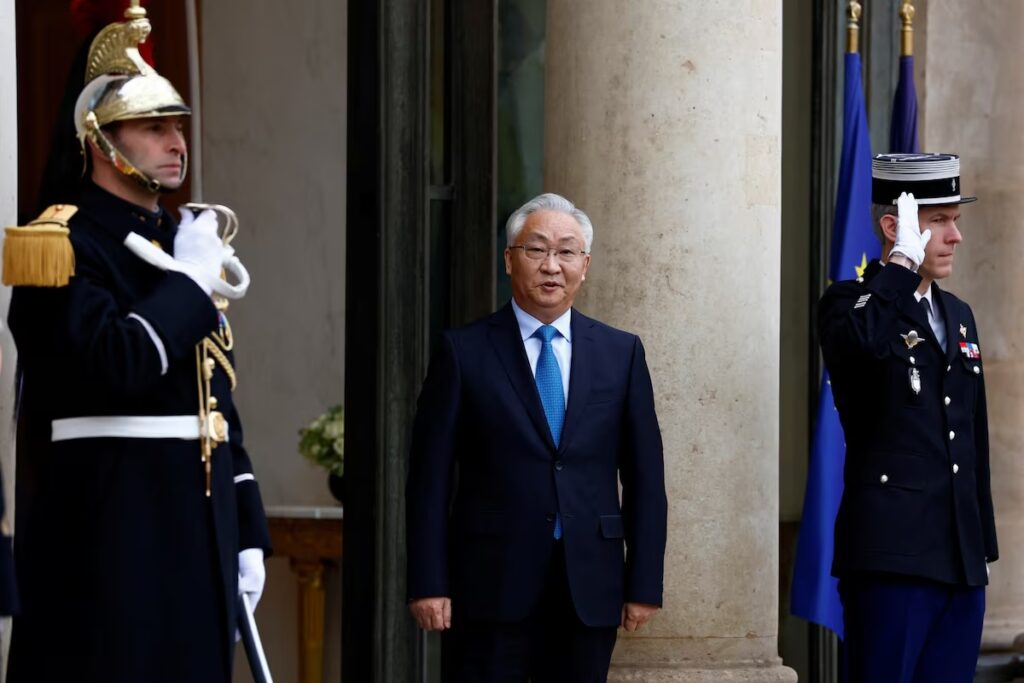
2-18 #FailedtoBreak : ARM will unveil its first chip made in-house as early as summer 2025; Samsung’s next-gen S series may feature bigger battery; Apple is actively working on robots for the smart home; etc.

Arm Holdings reportedly plans to launch its own chip in 2025 after securing Meta Platforms as one of its first customers, in a major shift to the chip tech provider’s model of licensing its blueprints to other companies. Rene Haas, Arm CEO, will unveil the first chip that it has made in-house as early as summer 2025. Arm’s chip is expected to be a central processing unit (CPU) for servers in large data centres and is built on a base which can then be customised for clients including Meta. Production will be outsourced to a manufacturer such as TSMC. (Android Headlines, Reuters, Silicon, Financial Times)


Samsung has shown its latest advancements in signage display technology for enterprise use. Samsung claims that its Color E-Paper offers an unparalleled low energy-image quality ratio. It is a thin display that combines digital ink and full-color e-paper technologies. The integration of digital ink technology allows the product to consume 0.00W in static images. The Samsung Color E-Paper is available in multiple sizes and resolutions: 13” (1600×1200), 25” (3200×1800), 32” QHD (2560×1440) and 75” outdoor version with 5K resolution (5120×2880). Samsung has also showcased the giant 115” 4K Smart Signage display with 700 nits of peak brightness and Tizen OS 8.0. Its 16:9 aspect ratio allows for greater versatility than other similar products, which the company took advantage of by integrating a multi-view mode with up to four simultaneous windows. The screen has a borderless design that guarantees an immersive visual experience.(Android Headlines, Samsung)

Apple’s foldable phone is allegedly to have a 5.49” outer display and a 7.74” inner display, which is expected to be released in 2026. Apple has long been rumored to be working an iPad and/or Mac foldable, which does make more sense than a foldable iPhone. (Android Headlines, Android Authority, Weibo)


Huawei is exploring the idea of a fingerprint sensor built into a smartwatch display, with the innovation designed to streamline the UI, perform gestures, and increase security. In the granted patent, the company describes a system that recognizes multiple fingerprints from the same user to unlock different features. For example, a thumbprint is a suggested method for opening a specific app, while a middle-finger tap on the sensor may unlock the watch itself or call a particular number. Gestures are also detailed in the filing, with a swipe across the sensor highlighted as a way to adjust brightness or volume.(Android Central, MySmartPrice, Wearable)
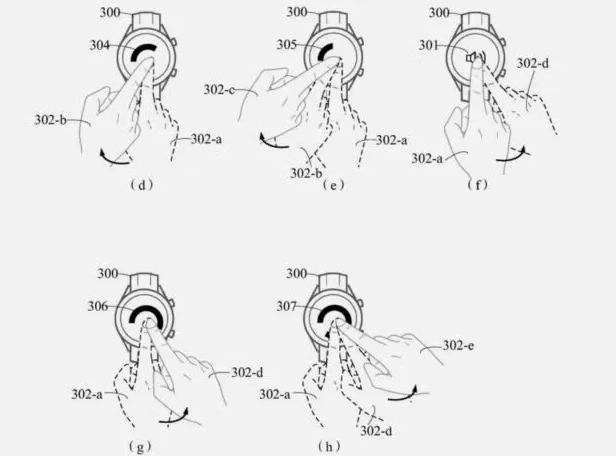
Apple’s iPhone Pro Max 17 will reportedly see a slimmer Dynamic Island, which would incorporate “metalens” Face ID components that shrink its overall footprint. Metalenses are advanced, ultra-thin optical lenses that use nanostructures to manipulate light at a microscopic level. They use arrays of nanostructures like titanium dioxide or silicon and can precisely control incoming light’s phase, amplitude, and polarization. Thus, metalenses can replace the traditional lens stacking seen in smartphone cameras, leading to slimmer camera modules. The metalens Face ID tech is expected to eventually make its way to future iPad Pro models and the rumored foldable iPad device that is speculated launch in 2026. (Android Headlines, Weibo, GSM Arena)
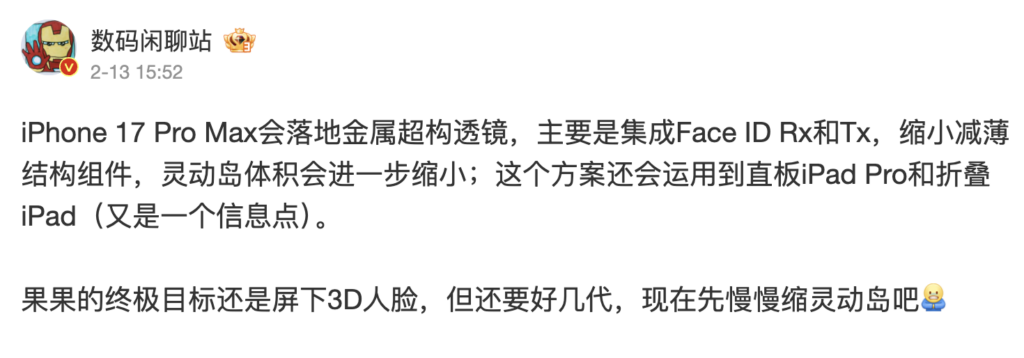

Samsung Electronics is allegedly reviewing a plan to introduce silicon carbon batteries in its next smartphone. Samsung Electronics, which usually uses batteries with a capacity of 4,000-5,000mAh, is highly likely to include a monster battery of 6,000-7,000mAh in the Galaxy S26 series. Silicon carbon batteries are small in volume and have high energy storage efficiency. (Android Central, FNNews)
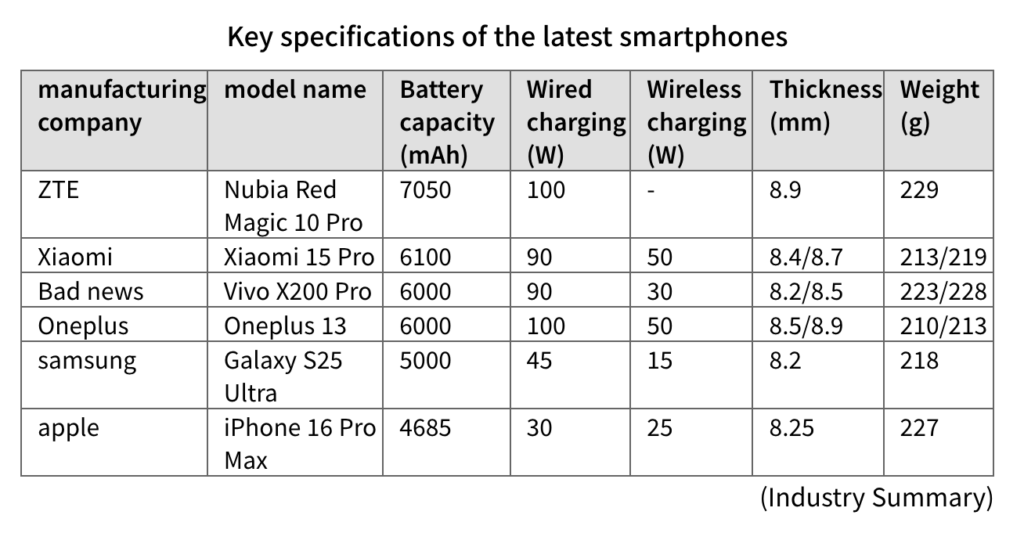

Canada Ontario Premier Doug Ford has said that he was ripping up a contract with Elon Musk’s Starlink internet service in response to U.S. President Donald Trump’s sweeping tariffs on Canada. Ford had also said he was also banning the sale of American booze and blocking American companies from provincial contracts. Ontario Premier Doug Ford is pausing all retaliatory measures in response to U.S. tariffs after President Donald Trump chose to delay imposing them on all Canadian imports for 30 days. That pause includes Ford’s promise to rip up Ontario’s nearly USD100M contract with Starlink. The Starlink contract, signed in Nov 2024, is meant to provide high-speed internet access through the company’s satellite service to 15,000 eligible homes and businesses in rural, remote and northern communities by Jun 2025. (CN Beta, AP News, CBC, Twitter)


According to Canalys, the global smartphone market grew 7% in 2024, reaching 1.22B units, marking a rebound following two consecutive years of declines. Apple defended its pole position on the vendor ranking table for the second year, backed by emerging market growth and stable performances in North America and Europe, which helped offset its challenges in Mainland China. For the full year 2024, iPhone shipments declined by 1% to 225.9M units. Samsung followed closely in second amid its continued profitability focus, as its shipments also declined by 1% to 222.9M units. Xiaomi maintained a stronghold on the third spot, being the biggest contributor to the industry’s volume growth in 2024. Driven by strong momentum in Mainland China and continued strategic expansion into emerging markets, its shipments grew by a strong 15% to 168.6M units. Transsion claimed the fourth spot for the very first time while OPPO (including OnePlus) rounded off the top five, growing 15% and 3% to 106.7M and 103.6M units, respectively. (Android Headlines, Canalys)
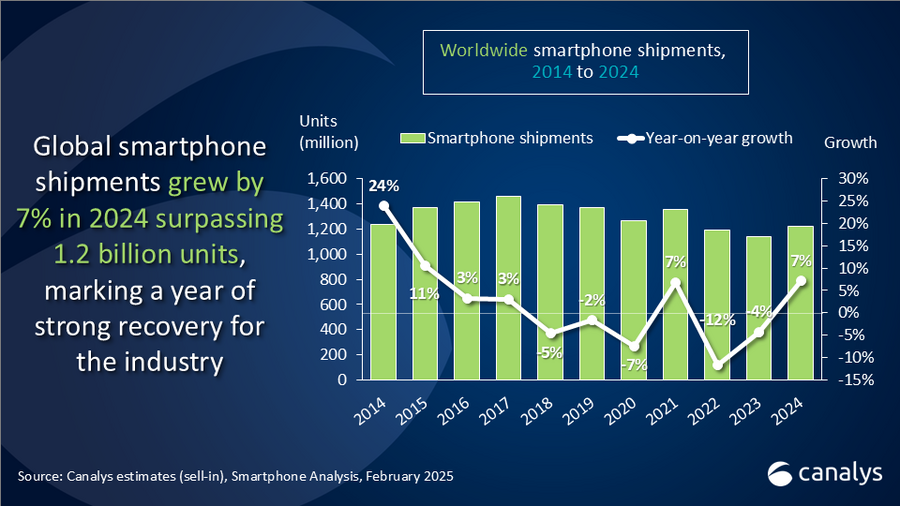
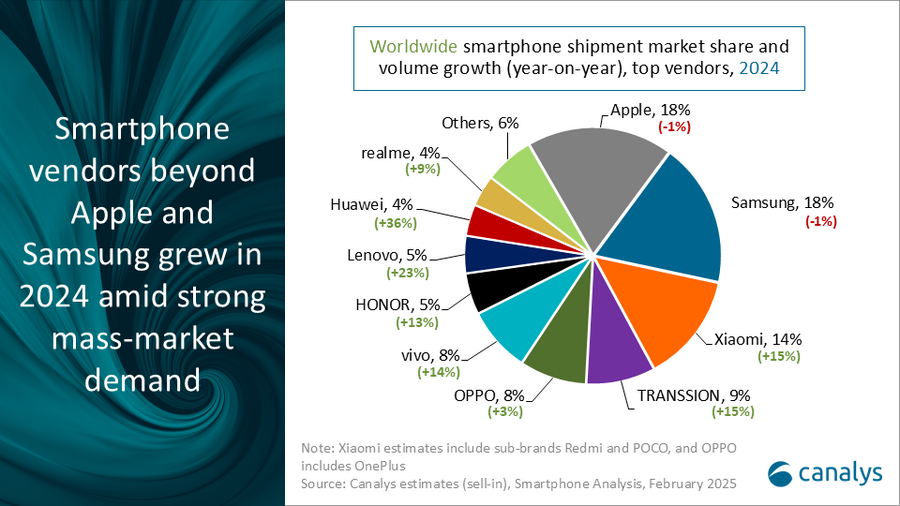
China has launched an antitrust investigation into Google as part of a salvo of responses to US tariff increases, including its own retaliatory tariffs and export controls. China’s State Administration for Market Regulation has announced the Google probe over suspicions the US search giant has violated Chinese antimonopoly laws. The probe relates to the dominance of Android and potential harms caused to Chinese phone manufacturers including OPPO and Xiaomi. The Chinese government says it will also introduce additional levies against select US goods, including a 15% tariff on coal and natural gas products, and a 10 percent tariff on crude oil, agricultural equipment, larger cars, and pickup trucks. China also announced export restrictions on certain mineral elements to “safeguard national security interests”. Impacted minerals include tungsten, tellurium, ruthenium, molybdenum, and ruthenium, which are critical to modern infrastructure and technology production. (Android Headlines, The Verge, SAMR, Financial Times, RFI, Sina)
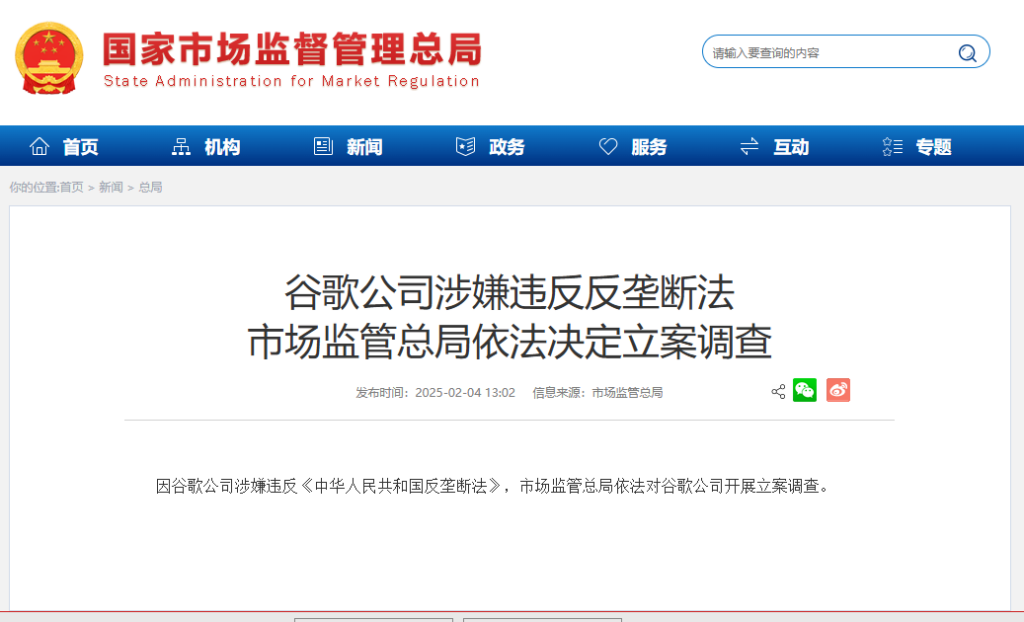
Apple wants to defend its multi-billion dollar search engine deal with Google, which is in danger because Google has been found guilty of violating antitrust law. Apple has asked the court handling Google’s lawsuit with the U.S. government for an emergency stay, so that Apple has time to intervene and plead its case before a remedy is decided on. The U.S. Department of Justice sued Google for anti-competitve behavior in the search market way back in 2020, and after a lengthy legal battle, the DoJ won. A main component of the lawsuit was Google’s deal with Apple, which sees Google pay billions annually to be the default search engine for Safari. The court decided that the agreement between Apple and Google violated antitrust law, and is a major reason Google has been able to maintain its search engine monopoly. The U.S. government asked the court to bar Google from entering into contracts with Apple, among other restrictions, and that will cost Apple a lot of money. In 2022, for example, Google paid Apple USD20B.(Android Headlines, MacRumors, US Courts)
According to Bloomberg’s Mark Gurman, Apple will be launching a new events and invites service as part of iCloud. This new service will differ from calendar. He describes “Confetti” as a “new way to invite people to parties, functions and meetings.” According to Bloomberg, Apple has been aiming to revamp the calendar app for years, and this is just the beginning of those efforts. (Android Headlines, Bloomberg, 9to5Mac, GSM Arena)
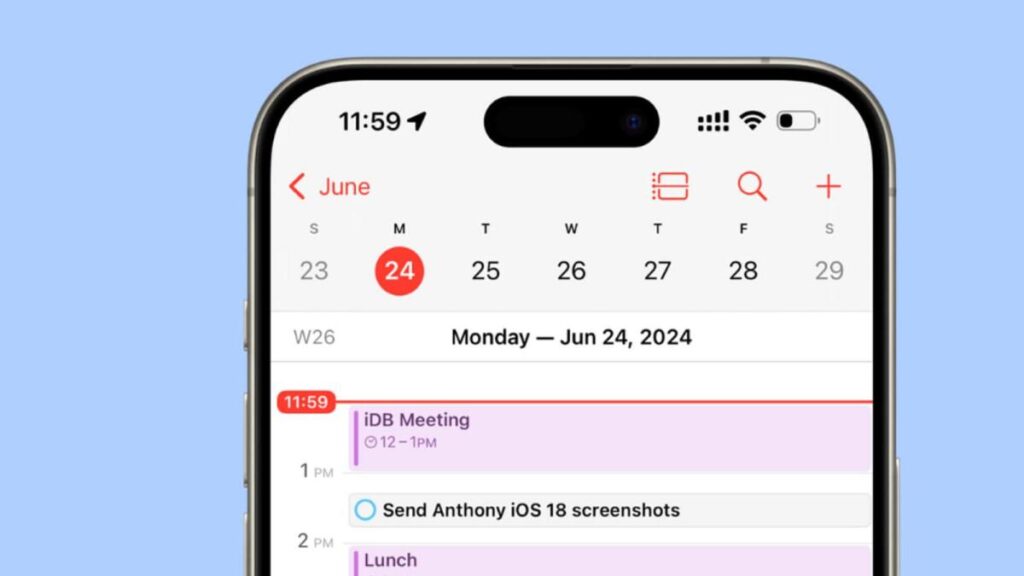
Apple’s iPhone 15 was the best-selling smartphone globally in 2024, according to Counterpoint Research. Apple and Samsung continued to dominate the top 10 best-selling smartphones list, with no other brands making the list for the third consecutive year. However, Samsung performed well in 2024, securing four spots on the list, up from three in 2023. (Android Headlines, Counterpoint Research)
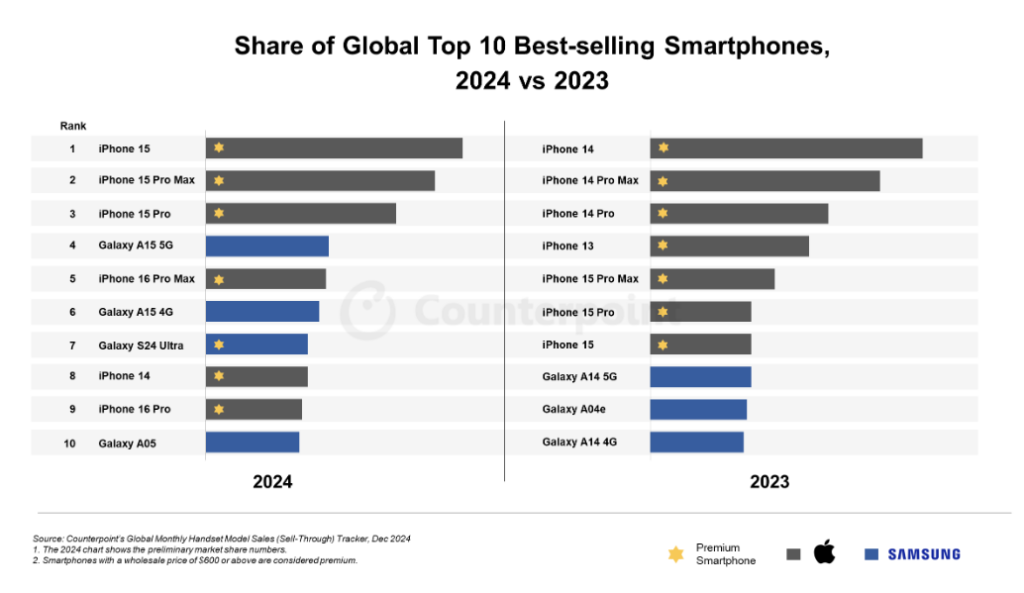
India’s Finance Minister Nirmala Sitharaman has announced that the country has removed import duties on some components key to producing mobile phones in a boost for local production efforts and benefiting firms such as Apple and Xiaomi. India’s electronics production has more than doubled in the last 6 years to USD115B in 2024, with the country now becoming the world’s second-largest mobile phone manufacturer. The list included components for mobile phone assembly such as printed circuit board assembly, parts of camera modules, and USB cables, which were taxed at 2.5% earlier. The cuts will help India better cope with a potentially disruptive year of global trade due to U.S. President Donald Trump’s tariff threats. (Apple Insider, Reuters, India Times)
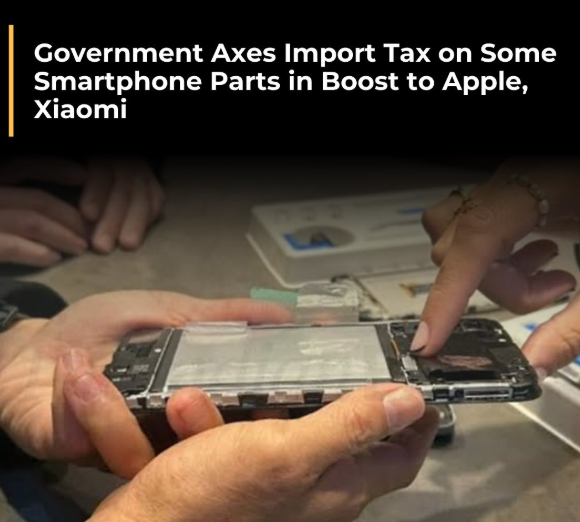
Apple is likely to sell over 20M iPhone SE 4 units in 2025, making it the most popular iPhone SE model ever, according to TF Securities analyst Ming-Chi Kuo. Kuo said that the fourth-generation iPhone SE is expected to see shipments of approximately 12M in 1H25 and 10M in 2H25, which is apparently better than previous iPhone SE models. The new device will reportedly reduce the impact of lower iPhone shipments at this time of year, as well as “accelerate the penetration of models that support Apple Intelligence”. (MacRumors, Twitter, Apple Insider, Twitter)
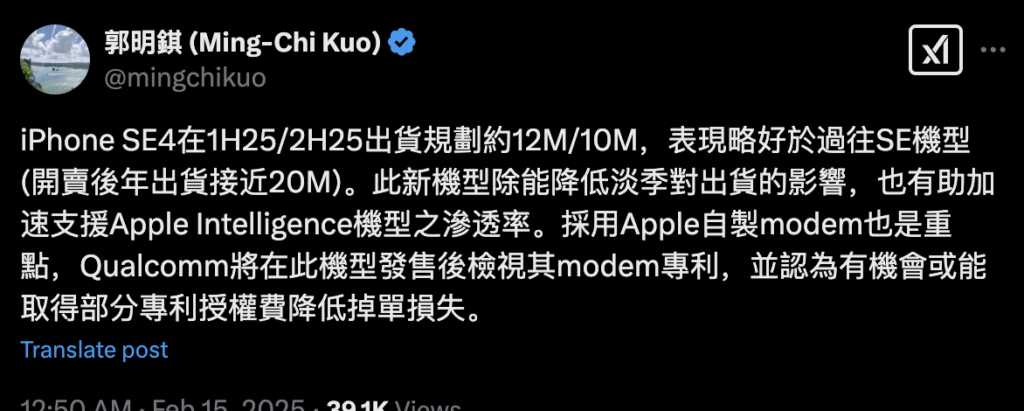

Samsung has filed a patent published on WIPO of a smart ring that could control other devices like tablets and even laptops. According to the patent filed, this Samsung smart ring will be able to connect with other devices, specifically the displays. It looks like the smart ring will be able to communicate between two devices: a laptop and tablet. It can be used to control the device’s display and move things around. The Samsung smart ring will even be able to move things from one display to another, like you can with Apple devices.(Android Authority, WIPO, 91Mobiles)
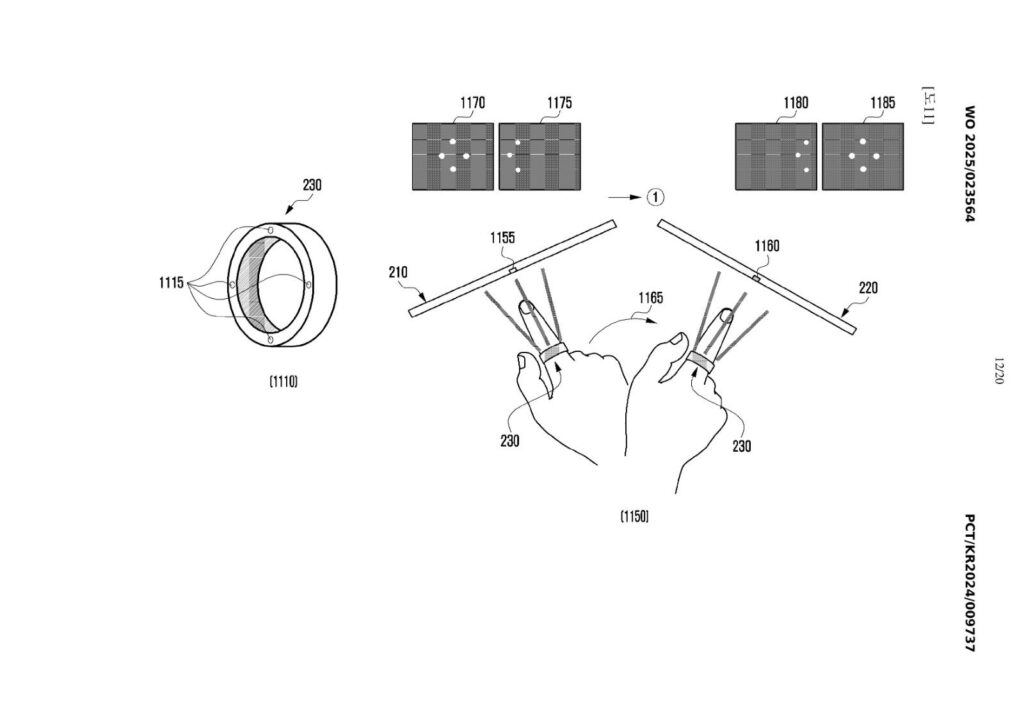
Google open-sourced PebbleOS, and Pebble’s founder Eric Migicovsky has vowed to get it running on new hardware. That effort is already underway, and an update from Migicovsky reveals that the Core Devices team has already gotten PebbleOS working on fresh components. As of now, the RePebble project team is exploring the nRF52840 chipset for hardware. The silicon has a 64 MHz Cortex-M4 with FPU, 1 MB Flash, 256 KB RAM, a 2.4 GHz Transceiver, Bluetooth Low Energy, and Bluetooth mesh, according to a listing for the chip on Nordic Semiconductor. (Android Central, Migicosvky, Android Headlines)
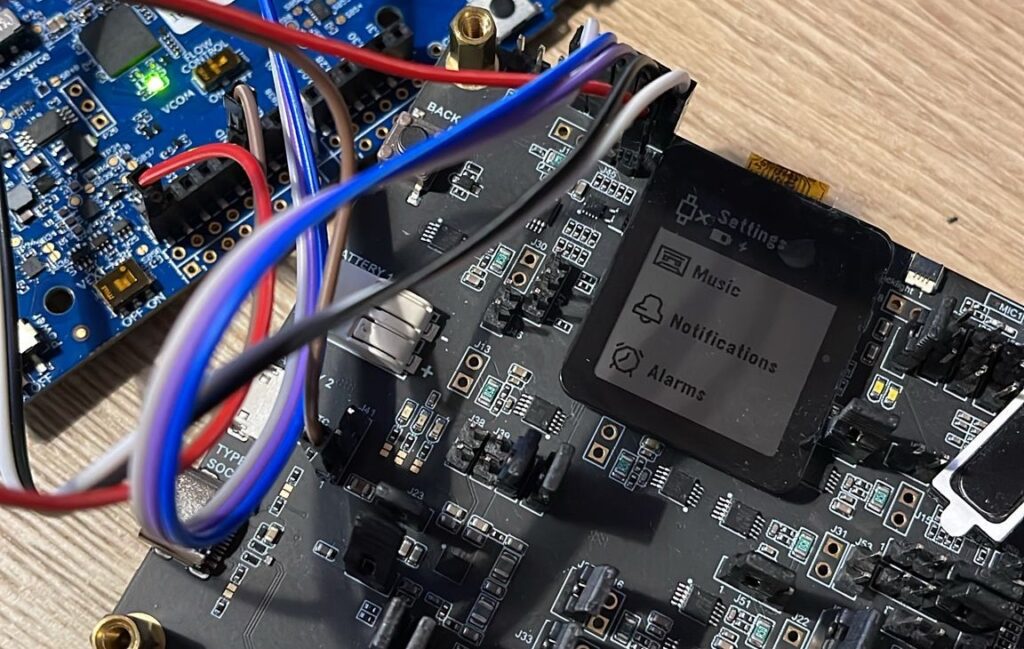

Meta’s investments in virtual and augmented reality projects could reportedly exceed USD100B in 2025. This spending comes as CEO Mark Zuckerberg sees 2025 as the “defining year” for the company’s smart glasses. Meta invested nearly USD20B in its Reality Labs unit in 2024, citing Meta’s annual report. That figure follows more than a decade of heavy losses and represents a new record in the lab’s spending. Reality Labs makes Ray-Ban Meta smart glasses, which Zuckerberg called a “real hit”, as well as its Quest VR headsets, which have been slower to catch on. So far, the company’s virtual reality (VR) and augmented reality (AR) spending has topped USD80B since 2014, the year Meta purchased VR headset maker Oculus. Zuckerberg has also called this a “defining year” for Meta’s artificial intelligence (AI) work, with plans to invest USD60B-65B in the effort in 2025.(CN Beta, PYMNTS, DEV, Business Insider, Yahoo, Financial Times)
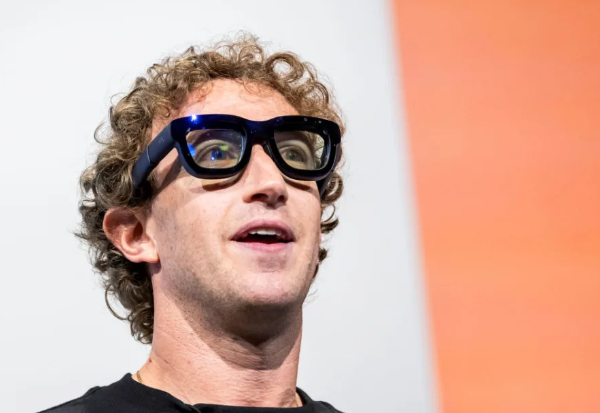

Amazon has spent years investing in robots that work in its fulfillment centers around the world. Developing and deploying these machines costs millions of dollars, but a new report claims they could save Amazon up to USD10B a year by 2030. Amazon’s use of robots in its fulfillment centers and warehouses goes back more than a decade, but it really started ramping up the numbers in recent times, increasing from 350,000 robots in 2021 to more than 750,000 by June 2023. The robots perform virtually every task a human is able to do, from picking / packing and sorting items to transporting goods, inventory management, and storage, all of which make up about 60% of fulfillment costs. As noted in a Morgan Stanley report, Amazon has developed 6 new significant warehouse robots in the past 3 years, covering almost every stage of the fulfillment process. One of those robots is Digit. This bipedal, 5-foot 9-inch, 143-pound robot from Agility Robotics can walk forward, backward, and sideways, squat and bend, and move, grasp, and handle items using its arm/hand-like clasps.(CN Beta, Techspot, Investing)
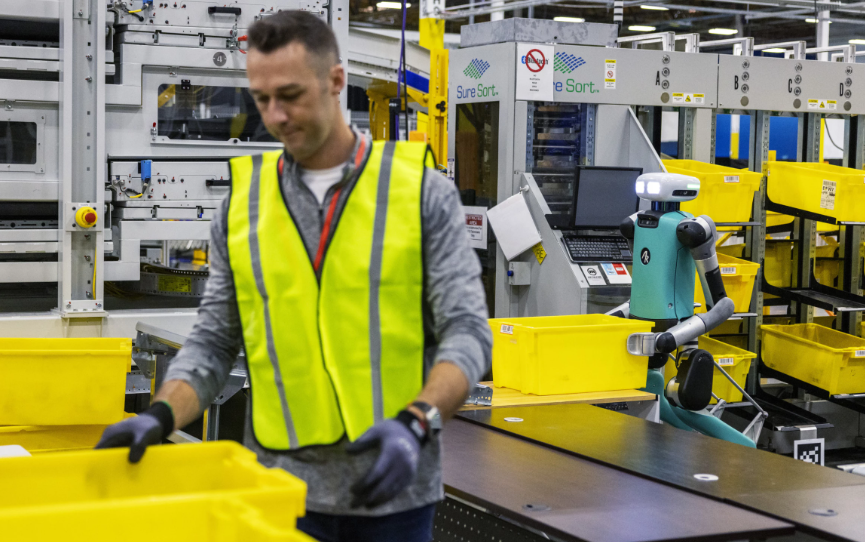
TF Securities analyst Ming-Chi Kuo has indicated that Apple is actively working on robots for the smart home, both in non-humanoid and in humanoid form. They are still in an internal proof-of-concept stage. Kuo indicates that the humanoid robot may not be as important to Apple, as it appears Apple cares “more about how users build perception with robots than their physical appearance”. That is, Apple is leaning more to anthropomorphic creations like the lamp concept instead of more human-like hardware. This, to Kuo, implies that the sensing hardware and software are serving as core technologies for Apple. (Apple Insider, Twitter)
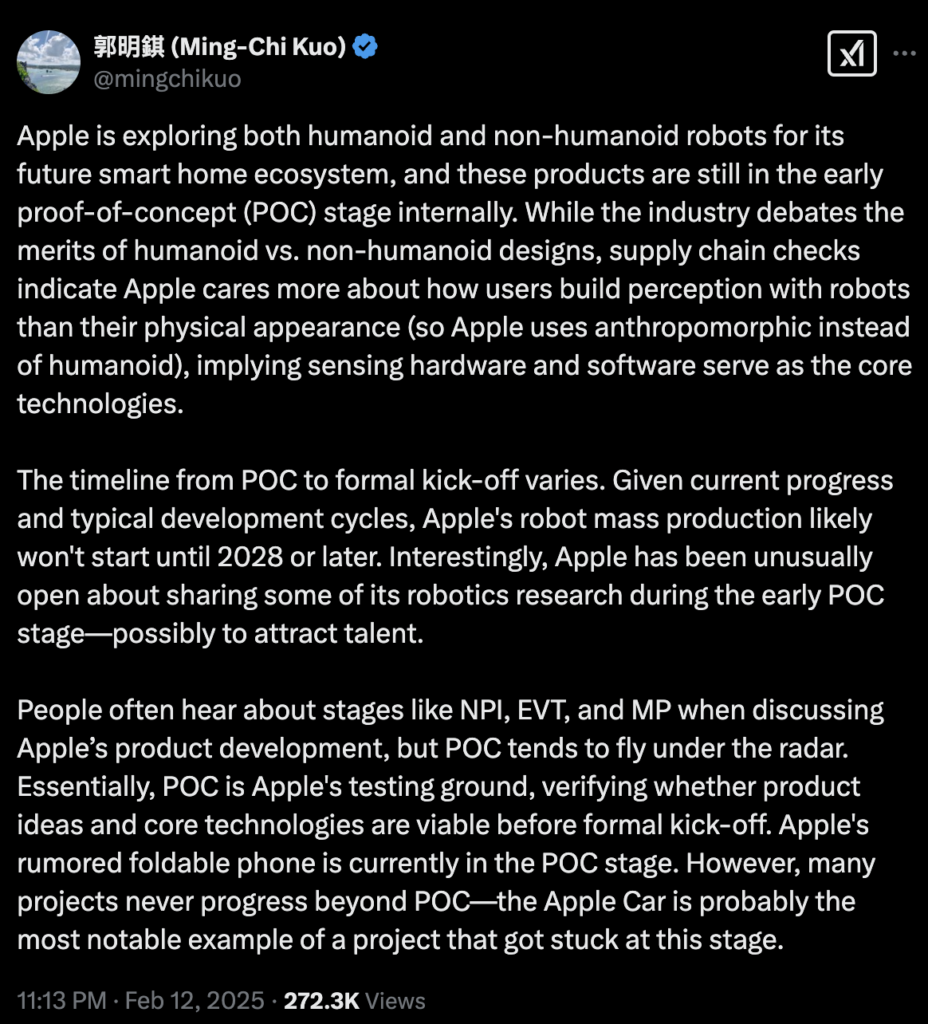

SoftBank Group CEO Masayoshi Son said he has agreed with OpenAI CEO Sam Altman to set up a joint venture in Japan to offer artificial intelligence services to corporate customers. The joint venture, SB OpenAI Japan, will be owned by OpenAI and a company established by SoftBank and its domestic telecoms arm. The Japanese investment giant will also pay USD3B annually to use OpenAI’s technology across SoftBank group companies.(CN Beta, SoftBank, Reuters, FinanceAsia)
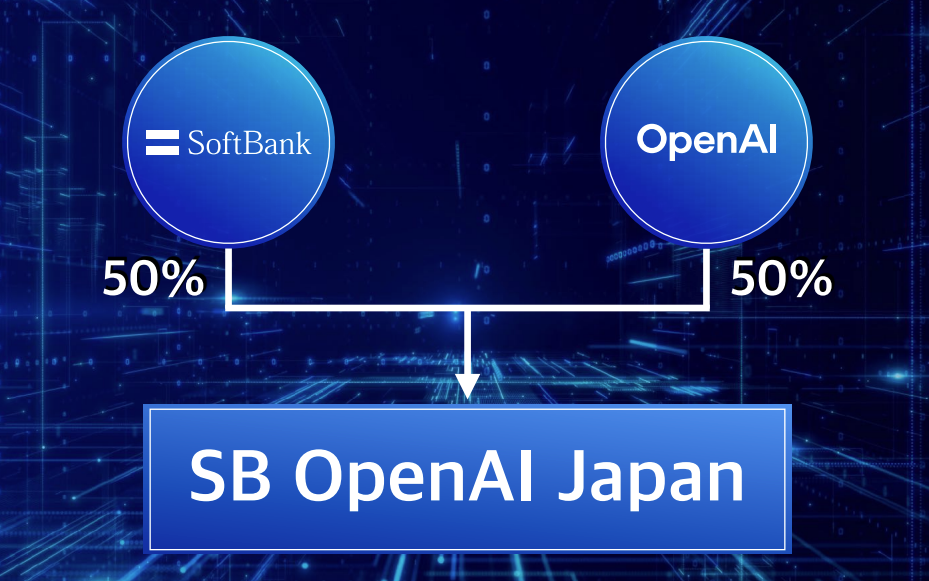
Alibaba chair Joseph C. Tsai has announced that Alibaba will partner with Apple to support iPhones’ AI services offering in China. The landmark deal also resolves months of speculation over Apple’s AI strategy in the region as the company had been in talks with Chinese tech leaders including Baidu, ByteDance and Tencent. (Apple Insider, Reuters, GSM Arena, Sina, IT Home)
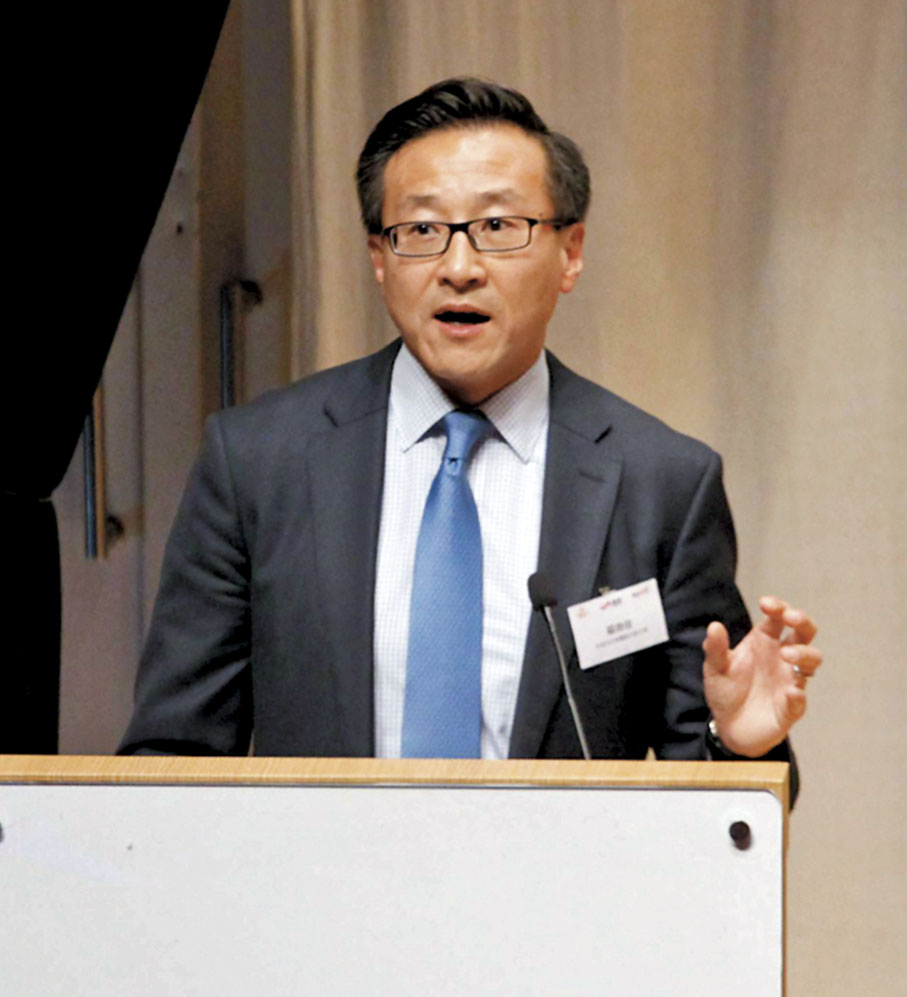
The European Union (EU) says it will channel EUR200B (about USD206B) into artificial intelligence investments in a bid to compete with the US and China. EU Commission President Ursula von der Leyen announced the bloc would spend EUR50B (about USD5B) to top up EUR150B (about USD154B) in funding already pledged by a collective of private investors called the European AI Champions Initiative. The EUR200B “InvestAI initiative” is earmarked to help “supercharge” the construction of so-called gigafactories required to train complex AI models within the bloc. This announcement follows French President Emmanuel Macron saying that EUR109B (around USD112B) will be invested into AI in France, describing it as an “equivalent” to President Trump’s USD500B “Stargate” AI data center project. (Android Headlines, European Commission, The Verge)
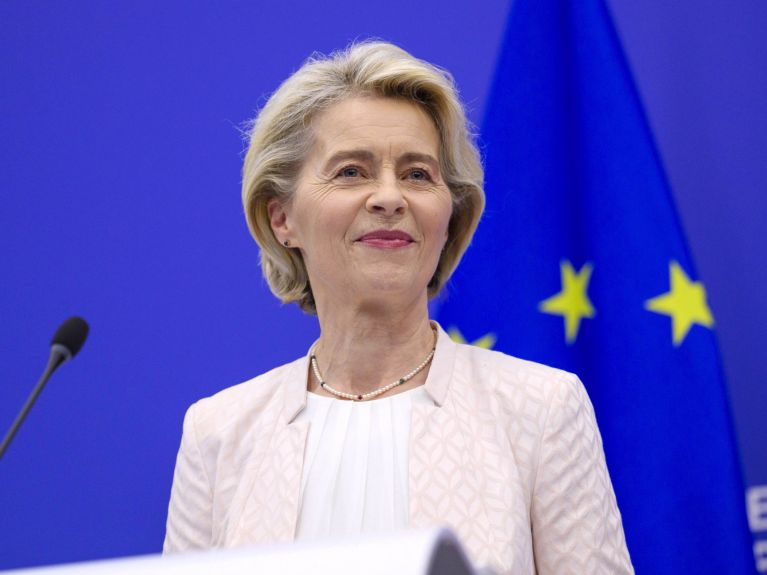
Chinese Vice Premier Zhang Guoqing said China is willing to work with other countries to safeguard security and share achievements in the field of artificial intelligence to build “a community with a shared future for mankind”. The political slogan building “a community with a shared future for mankind” is core to Chinese President Xi Jinping’s foreign diplomatic policy as China strives to deepen its relations with other partner-countries based on this sense of a shared global mission. (Android Headlines, News.AZ, Reuters, People, FMPRC)
